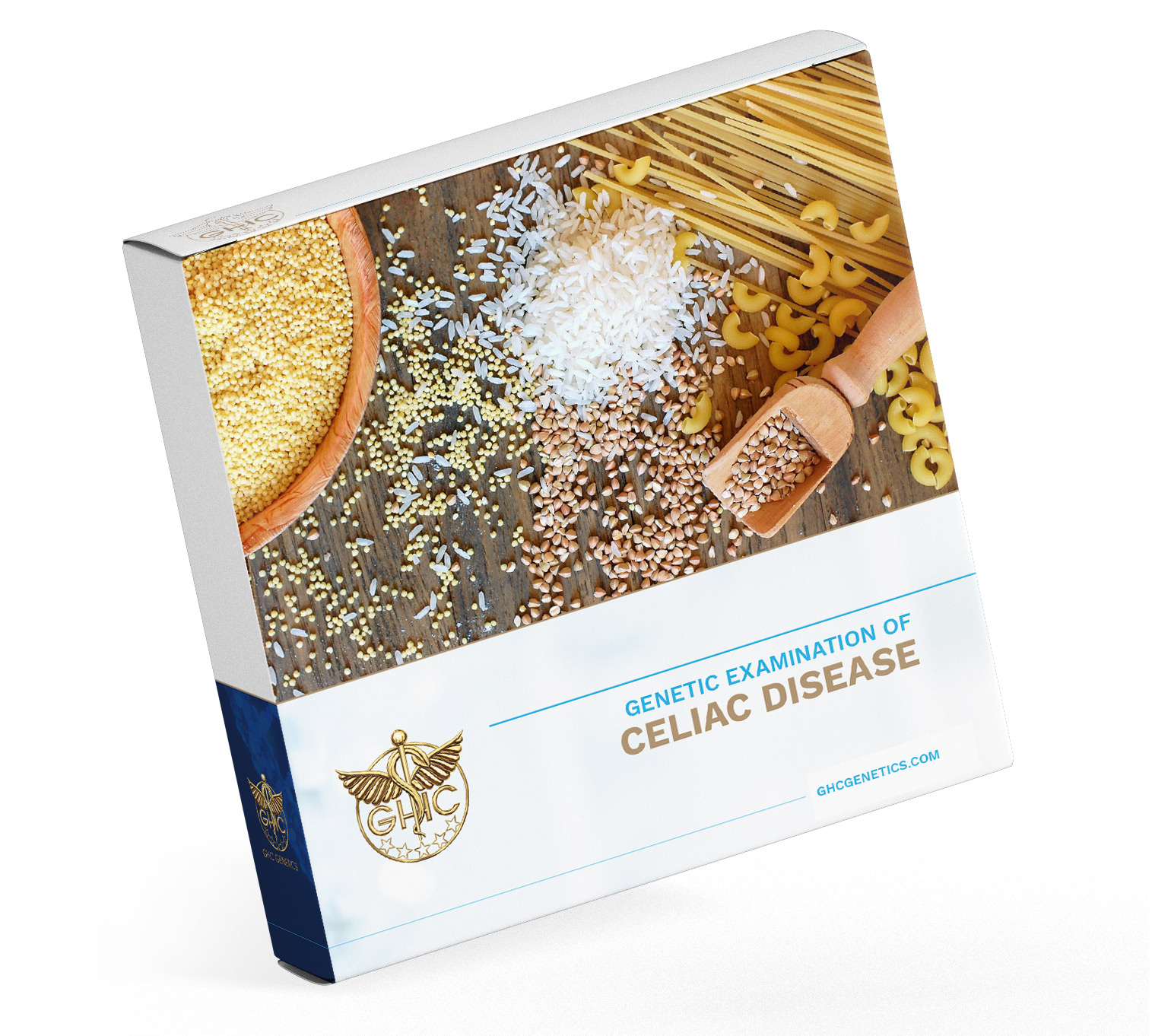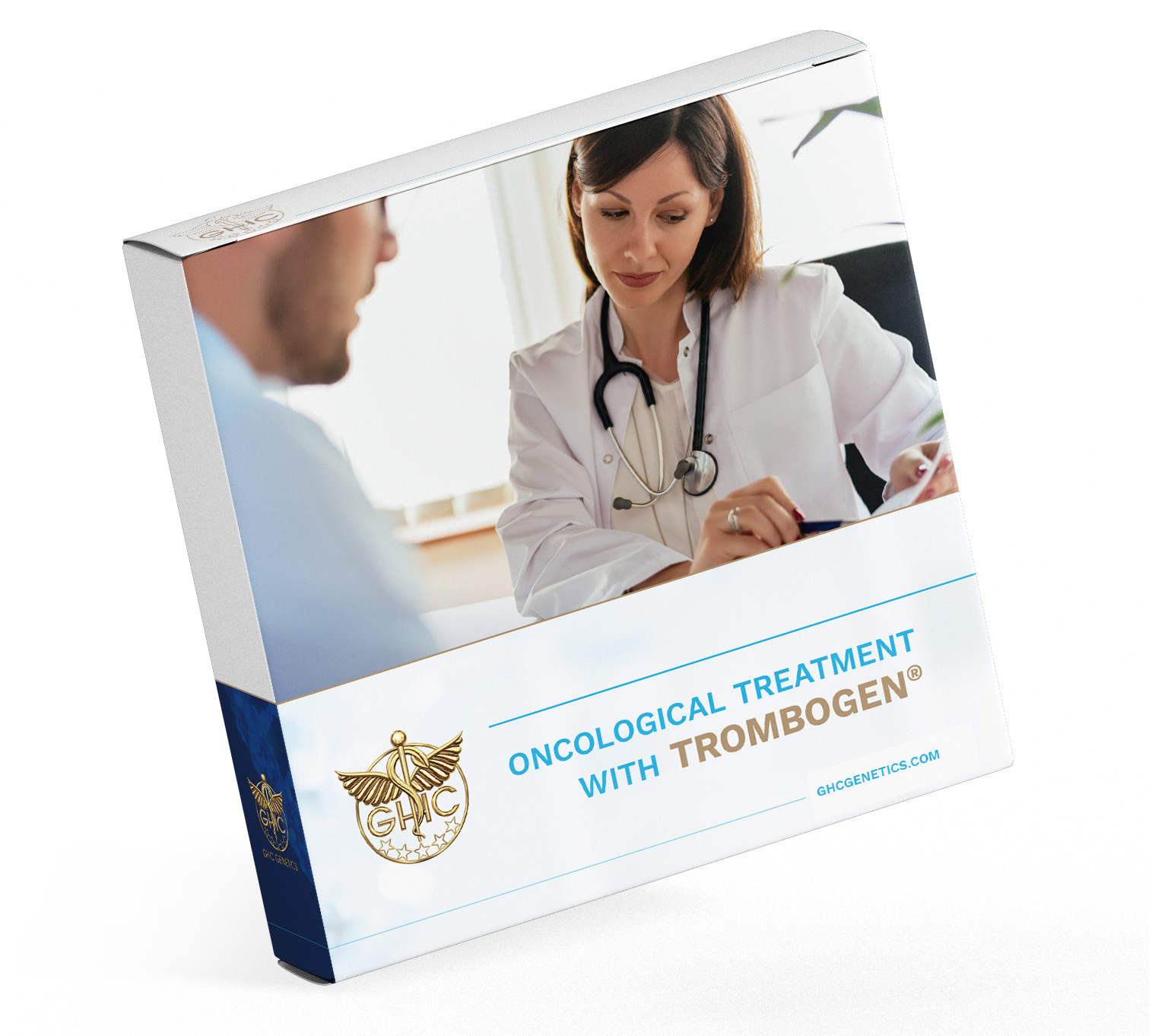Products
GENSCAN® (Full body genetic test)
GENSCAN® is the ultimate guide to life, health and vitality.
Through an analysis of over 300 gene variants, GENSCAN® provides you with a detailed
test report answering questions such as “How your body works” and “What you can do to remain healthy”.
Targeting the 23 most common diseases in the UK, GenScan® seeks to provide a genetic scan of your body.
— Explore
BRCA1,2 SCREEN (Breast and ovarian cancer)
BRCA1,2 SCREEN genetic analysis detects the presence of the 24 most frequent
mutations of the BRCA genes in our population that lead to an increased risk of cancer,
including inherited risk.
This test enables the detection of 60.5% of the most frequent
mutations in the BRCA1 gene and 36.2% of mutations in the BRCA2 gene.
— Explore
CARDIOGEN® (Cardiovascular diseases)
The risk is considered to be over 45 years for men and over 55 for women. The condition
atherosclerosis, which is more common in men than in women before menopause, has
a major influence on the development of a number of cardiovascular diseases.
The CARDIOGEN® test can
detect the risk of heart and blood vessel disease, even before the first clinical symptoms
occur.
— Explore
DENTALGEN® (Risk of periodontitis)
Many people believe that the diseases of the oral cavity (mouth) called periodontitis
cannot be related at all. The opposite is true.
This disease, which fatally affects the
teeth and has negative consequences for the overall health of the individual, affects
more than a third of the population in different forms.
The DENTALGEN® examines the presence of strains
of bacteria causing periodontitis, contributing to its detection in the early stages of the
disease.
— Explore
GENFORMEN® (Genetic analysis for men)
GENFORMEN® is a genetic analysis designed specifically for men. It provides the
opportunity to identify potential health risks ahead of time and to provide prevention or
help to change lifestyle in a timely manner.
It can predict, for example, an increased risk of lung cancer or prostate cancer, and early
detection leads to better treatment outcomes in general.
— Explore
GYNGEN® (Genetic analysis for women)
Modern medicine, with all its developments, tries to completely prevent serious illnesses, or to detect and cure them in their early stages, when they can deal with them most effectively.
It uses the latest findings of molecular genetics and offers a comprehensive genetic analysis focused primarily on women. GYNGEN®, our genetic test specifically for women, can provide such information.
— Explore
Androgenic Alopecia (Genetic examination)
Hair loss affects men in particular, but in some cases also a certain percentage of women.
The causes of hair loss can vary from immunological, allergic to genetic. Androgenic
alopecia is a genetic condition and has a characteristic appearance.
The appearance and
slower hair growth affects a specific part of the head, the hair is sharply bounded with
the horseshoe stripe on the sides and the back of the head.
— Explore
CELIAC DISEASE (Genetic examination)
A Gluten-free diet can now be considered a fashion trend. A lot of people now follow this
trend, including professional athletes. But for some they have not chosen this fashion
trend voluntarily.
Our genetic test can almost exclude the possibility of
celiac disease occurring in your body and can also reduce the number of unpleasant endoscopies that are used to confirm the diagnosis of
the disease.
— Explore
FRUCTOSE INTOLERANCE (Genetic examination)
Hereditary fructose intolerance is an inherited disease that manifests itself as an
inability to metabolize fructose and fruit sugars. Fructose is mainly contained in fruit
- fruit syrups, compotes, marmalades - but also in honey, sauerkraut, cruciferous or
onion vegetables.
For the affected person long-term fructose intake can lead to severe liver and kidney damage.
— Explore
HISTAMINE INTOLERANCE (Genetic examination)
HIT can cause intolerance of some foods. Histamine is present in foods primarily due
to the maturation and fermentation process as it is produced by the action of bacteria
(bacterial decarboxylation) from the amino acid histidine.
This is the cause of high
histamine content in foods that are microbially produced, fermented or stored for a
long time. Histamine cannot be destroyed by heat treatment or freezing.
— Explore
LACTOSE INTOLERANCE (Genetic examination)
You may have heard a word about lactose intolerance. The partial or total inability of
the digestive tract to process lactose, ie milk sugar, is very common today. Lactose
intolerance affects approximately every sixth member of the population.
So take a genetic test to confirm or deny painlessly whether your potential digestive
problems are caused by this disease, but also whether you have a predisposition to it.
— Explore
GENEALOGY (Genetic origin)
Did your ancestors live in China or North America? Is there a person who is genetically
related to you around the world?
These and many other questions will be answered by
our genealogical DNA test. It can be an ideal gift for a round birthday and an interesting
probe into your family history.
— Explore
FAMILIA (Variety of relationships)
There may be situations in your life where you need to verify or establish your biological
kinship with others.
In order to make the test result unambiguous, it is necessary to also analyze the child's
mother sample. However, if neither a mother's sample is available, the reliability of the
outcome depends on a number of circumstances, particularly on the gender of the child.
In this case, it is advisable to consult with us before the test is ordered.
— Explore
DUOLINEA (Maternal and paternal lines)
A genetic test will make this search much easier and will reveal your deepest roots.
The information obtained is useful for the study of family history and genealogy, for
the compilation of distant kinship or pedigrees
This
test determines the relevance of the human being to the Y-DNA haplope (Y-DNA clone)
and also to the mtDNA haplus (clone mtDNA).
— Explore
TWINS ZYGOSITY (Genetic examination)
The DNA test makes it possible to determine uniquely whether the twins are single
(monozygotic) or bivalent (dizygotic). Approximately two-thirds of all twins are bivalent.
Determining the zygosity of twins is not easy.
Single-sex twins are of different sex only in
isolated cases when a genetic mutation occurred during intrauterine development.
— Explore
PAPAGEN® (Paternity genetic test)
Tests of paternity are well known especially in films where they usually bring a story
plot. The PAPAGEN® Genetic Test is here to untie the plot and help physicians diagnose
them.
Genetic analysis plays a significant role not only in the determination of paternity,
but also from the medical point of view - in the case of the risk of an inherited disease
or the possibility of organ donation.
— Explore
MAMAGEN® (Maternirty Genetic test)
There may be circumstances in your life that lead you to verify your biological kinship
with another person. In some situations, you need to be certain that you are really
the biological mother of your child or your mother's child.
Determination of biological
kinship may also be important from the medical point of view, in the case of the risk of
hereditary disease or the possibility of organ donation.
— Explore
HPV DNA DETECTION (Human Papillomaviruses)
Human papillomaviruses, which are the main cause of cervical carcinoma (cervical
cancer, cervix cancer), are classified as non-enveloped DNA viruses. More than 100 types
of HPV are currently known.
HPV or Human Papillomavirus (Human Papillomavirus) is considered the major cause
of cervical cancer. Cervical cancer is caused by certain types of
papillomavirus (HPV) and can exist in both non-malignant and malignant tumours.
— Explore
STD DNA DETECTION (Sexually transmitted diseases)
Untreated sexual diseases and their complications can cause fertility disorders, affect
pregnancy (miscarriages, premature births) but can also be transmitted to the fetus (a
child with permanent consequences).
The most reliable way of preventing a long-term
relationship with one uninfected partner. Protection from most sexually transmitted
diseases is primarily with the use of condoms.
— Explore
Resistance to HIV (Genetic examination)
In HIV research, scientists have come up with very interesting findings. Some people
who have very often come into contact with HIV-positive blood have either not been
HIV-positive or HIV-positive.
This has led Scientists to develop a genetic examination of
the differences between HIV-positive people and those who, though they could, did not
become HIV-positive. Scientists have even found several genes, some of which protect
humans from HIV infection or, in the event of an infection, this virus will make life
unusual for humans.
— Explore
TROMBOGEN® (Safe contraception)
The risk of developing thrombi (blood clots) is 2-4 times higher in women using
hormonal contraception compared to women who do not use it. If you have an
inherited predisposition to hypercoagulability, you may run as much as an 80-fold risk when taking hormonal
contraceptives.
Thanks to the TromboGen® test, you can find out whether you have any genetic
predisposition to thrombosis (blood clotting).
— Explore
TROMBOGEN® (Safe pregnancy)
Pregnancy is one of the most beautiful times in a woman's life. You watch
all the changes in your body with joy and expectation, but also with certain
concerns. You gradually acquire a lot of new information to help you understand
what’s happening inside you.
However, if you have a congenital predisposition
for increased blood coagulation, you are at a higher risk of serious complications.
— Explore
TROMBOGEN® (Safe Hormone Replacement)
Hormone replacement is a drug for the treatment of acute climacteric syndrome and
is suitable for the prevention of urogenital atrophy. Its administration is especially
recommended in women with premature menopause (before the age of 40) and early
menopause (before the age of 45).
If you have an increased genetic risk, you will be
advised on appropriate treatment and preventive monitoring to prevent the above
complications.
— Explore
TROMBOGEN® (Oncological treatment)
Deep vein thrombosis and pulmonary embolism are a frequent complication of
malignant diseases. Patients treated for a malignant tumour run an approx. 6 x higher
risk of developing thrombosis compared to the healthy population.
The increased
incidence of thromboembolic disease applies to patients with solid tumours,
patients suffering from haematological malignancies as well as hospitalised patient
and those undergoing surgery.
— Explore
VISIONGEN® (Protect your vision)
Our DNA test is simple and easy to use. Patients can be tested in store using our CE
certified buccal mouth swab. All instructions are supplied in our comprehensive low
cost test kit.
VisionGen tests the patient for their predispositions to age-related macular degeneration
(AMD) and primary open-angle glaucoma (POAG). Patients can learn about the likelihood
of developing these vision conditions long before the onset of preliminary symptoms.
— Explore
























